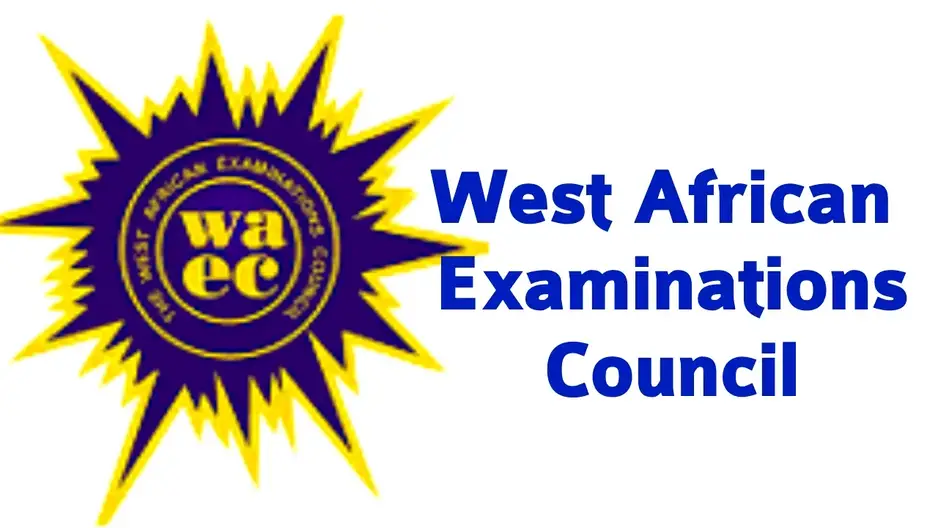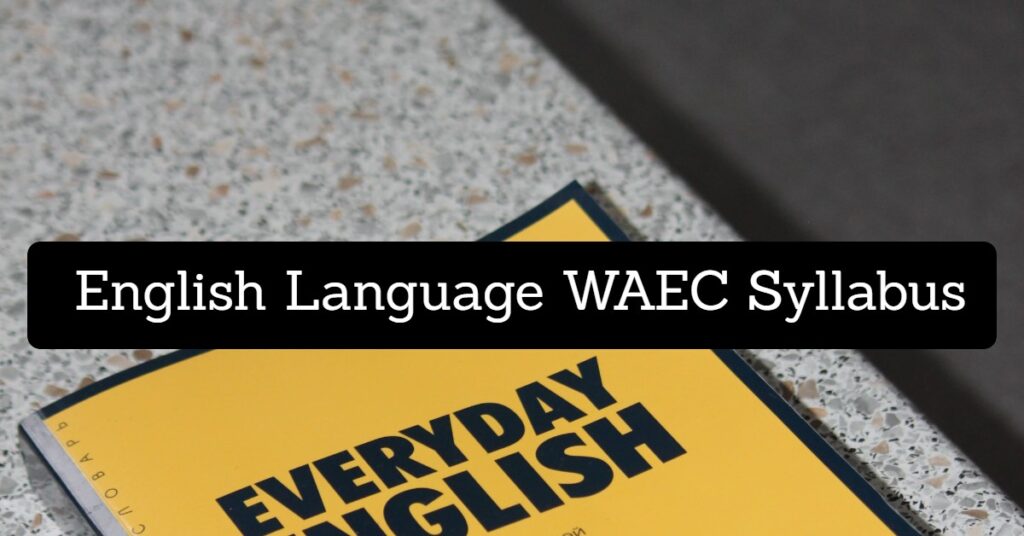
The WAEC syllabus for Government is indispensable for candidates preparing for the examination. It delineates the aims and objectives, along with comprehensive notes and format necessary for understanding the Government exam.
Studying the Government syllabus is imperative for effective exam preparation. It provides a structured guide for candidates to navigate through the topics to be covered, including essential concepts to focus on learning.
Embarking on exam preparations without utilizing the Government syllabus is akin to embarking on farm work without the requisite agricultural tools, resulting in diminished productivity.
It is crucial to kickstart exam preparations by thoroughly engaging with the provided syllabus.
This post also includes recommended textbooks endorsed by the West African Examination Council (WAEC) to complement your study of Government.
WAEC Government Syllabus
Aims and Objectives
This syllabus aims at assessing the candidates’ ability to
(a) define the concepts of Government and show their understanding of its principles, institutions and processes.
(b) recognize their role as an informed citizens and their contributions towards the achievement of national development.
(c) evaluate the successes, failures and problems of governments in West Africa.
(d) analyse the constitutional developments and processes of colonial and post – independent government.
(e) appreciate the role of their country as a member of the international community.
Scheme of the Examinations
There will be two papers – Paper 1 and Paper 2, both of which must be taken. Papers 1 and 2 will be composite and will be taken at one sitting.
PAPER 1: This will consist of fifty multiple-choice objective questions drawn from the entire syllabus. Candidates will be required to answer all the questions in 1 hour for 40 marks.
PAPER 2: This will be a 2-hour essay type test consisting of two sections, Sections A and B as follows:
Section A: Elements of Government
Shall contain five questions out of which candidates shall be required to attempt any two.
Section B: Political and Constitutional Developments in West Africa and International Relations
Shall contain sets of five questions each; one set for one member country. Each candidate is to answer two questions chosen from the set on the country in which he/she is taking the examination.
The paper shall carry 60 marks.
Section A: Elements of Government
Meaning and Scope of the Subject Matter – Government
- Government as an institution of the state
- Definition of state, features, structure and functions.
- Government as a process or art or governing.
- Government as an academic field of study – reasons for studying government.
Basic Concepts and Principles of Government
- Basic concepts – State, *Society, *Nation, Power, Authority, Legitimacy, Sovereignty, Democracy, Political Culture and Socialization, Communalism, Feudalism and oligarchy, *Liberalism, Socialism, Communism, Capitalism, Fascism, Aristocracy, Totalitarianism.
Meaning and features.
- Basic principles – Rule of Law, Fundamental Human Rights, Separation of Powers/Checks and Balances, Constitutionalism, Political participation, Representative Government, Centralization and Decentralization – (Delegated Legislation, Devolution and Decentralization).
Constitutions
- Definition and Sources
- Functions
- Types and Features, (Written and Unwritten, Rigid and Flexible).
Organs of Government
The Executive, the Legislature and the Judiciary – Judicial Independence. (Types, Structure, Composition/membership; Functions; powers and limitations).
State Structure and Characteristics of Government
- Types – Unitary, Federal, Confederal, Presidential or Non-parliamentary, Parliamentary or Cabinet, Monarchical and Republican.
- Meaning, types, features, merits and demerits.
Citizenship
Meaning, mode of acquisition, rights, duties and obligations of individuals in the state. Means of safeguarding rights of citizens.
Political Parties and Party Systems
- Political Parties – definition, organization/structure, and functions.
- Party Systems – definition, types, merits and demerits.
Pressure Groups, Public Opinion and Mass Media
- Pressure Groups – definition, types, mode of operation and functions;
- Public opinion – definition, formation, Measurement and importance;
- Mass Media – definition, roles and impact.
The Electoral Systems, Processes and Electoral Management Body
- Electoral Systems and Processes
- Election- Meaning and purpose of elections.
- Franchise – meaning, and limitations.
- Types, advantages and disadvantages of Electoral Systems.
- Electoral Management Body – definition, function, problems/constrains.
Public/Civil Service Administration
- Public/Civil Service – Meaning, Structure, Characteristics and Functions.
- Public/Civil Service Commission –meaning and Functions.
- Public Corporations – definition, purposes, functions, control, challenges, need for commercialization and privatization.
- Local Governments – Meaning, structure, Purposes, Functions, Sources of revenue, control and problems.
Section B: Political and Constitutional Developments in West Africa and International Relations
SECTION B: POLITICAL AND CONSTITUTIONAL DEVLEOPMENTS IN
Pre-colonial Political System of Candidates Respective Countries
The Structural Organization of the following:
- Nigeria – Hausa/Fulani, the Yoruba and the Igbo.
- Ghana – The Akan and the Talensi.
- Sierra Leone – The Mende and Temme.
- The Gambia – The Wolof, Mandingo and Jola.
- Liberia – The Vai and the Kru.
Colonial Administration
- The Policy and Structure of the British Colonial Administration – Crown Colony, Protectorate and Indirect Rule.
- The Policy of French Colonial Administration – Assimilation and Association (Loi Cadre).
- Impact, Advantages and disadvantages of Colonial Rule.
Nationalism in Candidates respective Countries
- Nationalism: Meaning, factors and effects.
- Key Nationalist leaders/movements and their contributions.
Constitutional development in Candidates Respective Countries
(i) Pre-Independence Constitutions –
- Nigeria (features) – Clifford 1922
Richards 1946
Macpherson 1951
Littleton 1954
- Ghana (features, merits and demerits) – Clifford 1916
Guggisberg 1925
Burns 1946
Arden Clarke 1951
Nkrumah 1954
- Sierra Leone (features, merits and demerits) – Slatter 1924
Stevenson 1947
Beresford Stooke 1951 The 1956 and 1958
Constitutions.
(d) The Gambia (features, merits and demerits) – The 1947, 1951,
1954, 1960, 1962 and 1963
Constitutions.
(ii) Post-Independence Constitutions – Features
(a) Nigeria – Independence Constitution, 1960
Republican Constitution 1963
The 1979 and 1989 Constitutions
1999 Constitution – Origin, features, strength and Weaknesses.
(b) Ghana – Independence Constitution, 1957
Republican Constitution 1960
2nd Republican Constitution 1969
3rd Republican Constitution 1979
4th Republican Constitutions 1992.
(c) Sierra Leone – Independence Constitution 1961
Republican Constitution 1971
The 1978 and 1991 Constitutions,
(d) The Gambia – Independence Constitution 1965
Republican Constitution 1970.
2nd Republican Constitution 1997
(e) Liberia – Independence/Republican Constitution 1947
2nd Republican Constitution 1985
Development of Major Political Parties in the Candidate’s Respective Countries
- Nigeria
- Sierra Leone
- The Gambia
- Liberia
Formation, Objectives, Sources of Finance, Achievements and Failures
Military Rule in the Candidates’ Respective Countries
- Nigeria
- Ghana;
- Sierra Leone
- The Gambia
- Liberia
Causes, effects and various military regimes.
Federal/Unitary Systems of Government in West Africa
- Nigeria
- Sierra Leone
- The Gambia
- Liberia
Origin, Factors, Structure, Features and Problems
Foreign Policies of the Candidates’ Respective Countries
- Nigeria
- Ghana
- Sierra Leone
- The Gambia
- Liberia
Definitions, Factors, objectives, advantages and disadvantages.
International Organizations
- The United Nations Organizations (UNO),
- The Commonwealth of Nations,
- African Union (AU) – NEPAD,
- The Economic Community of West African States (ECOWAS).
- Origin, aims/objectives, achievements and problems.
WASSCE Government Recommended Textbooks
| Author | Title |
|---|---|
| ADU BOAHEN, A | Ghana Evolution and Change in the 19th and 20th Centuries |
| HODGKIN T. | African Political Parties |
| ADDAE P. G. | Senior Secondary School Government Bks. 1&2 |
| ECHIEFU S. M | Modern Government |
| DARE AND OYEWOLE | A Textbook of Government for Senior Secondary School |
| OYEDIRAN AND CO. | Government for Senior Secondary School. |
| FRANCIS ADIGWE | Essentials of Government |
| PRAH ISAAC | Government for Senior Secondary School |

